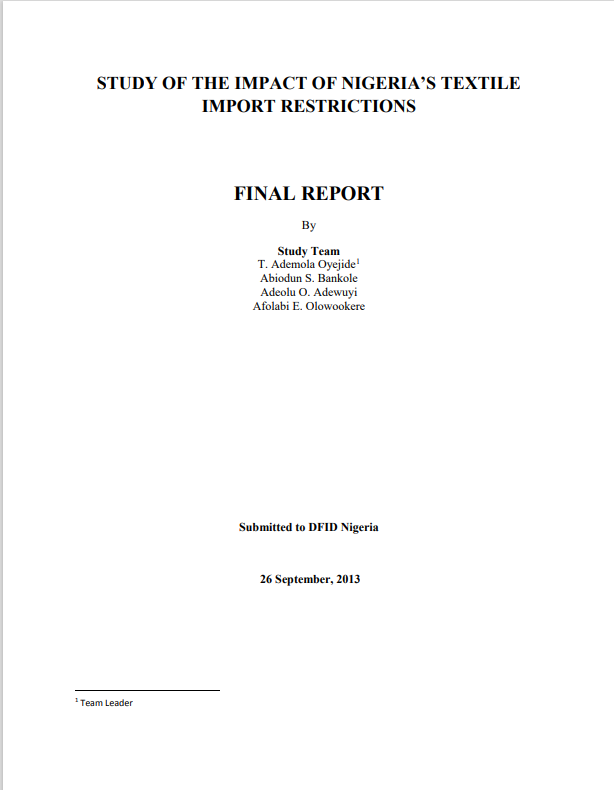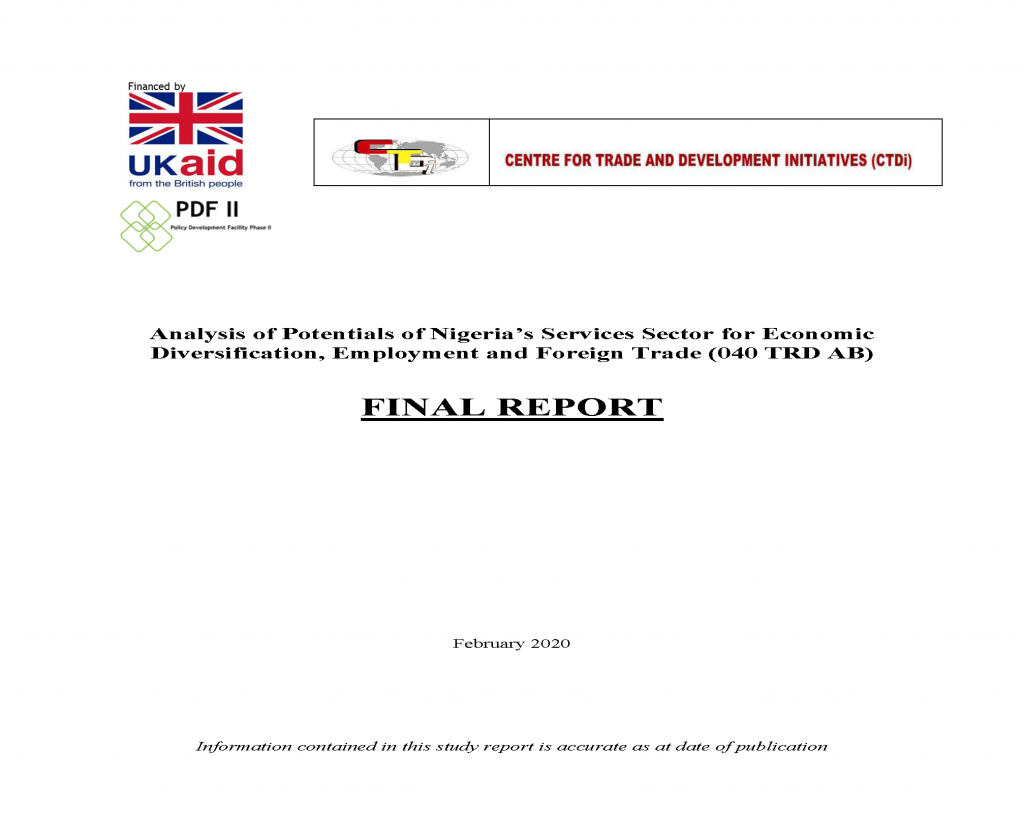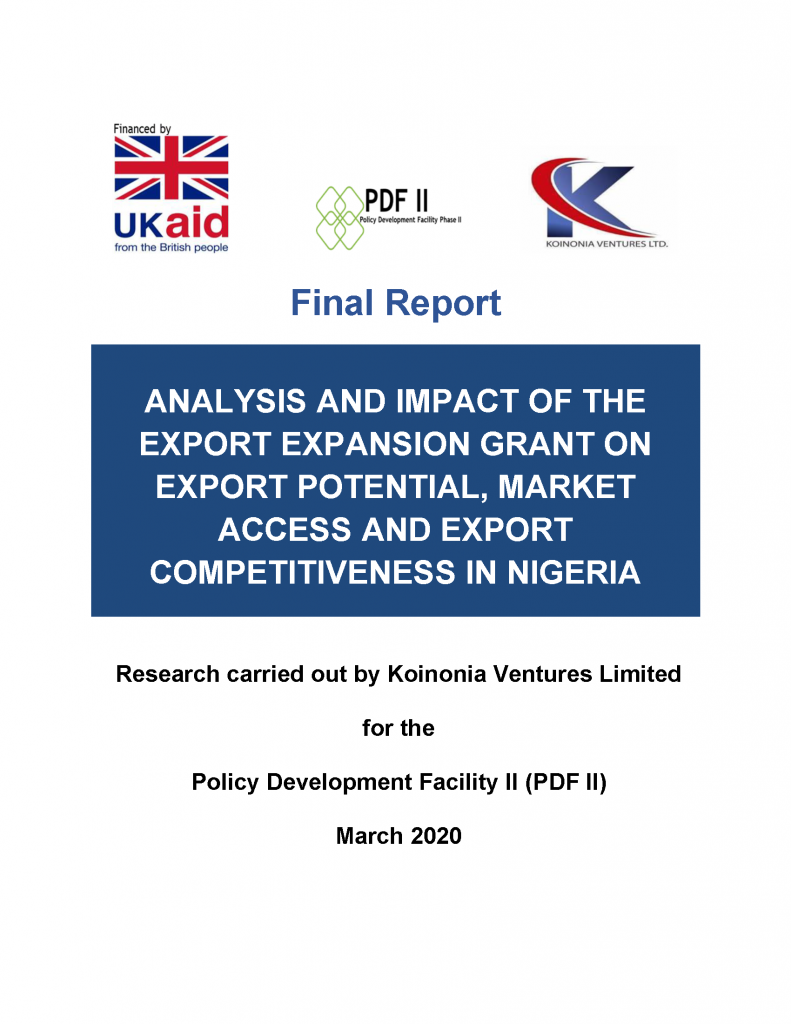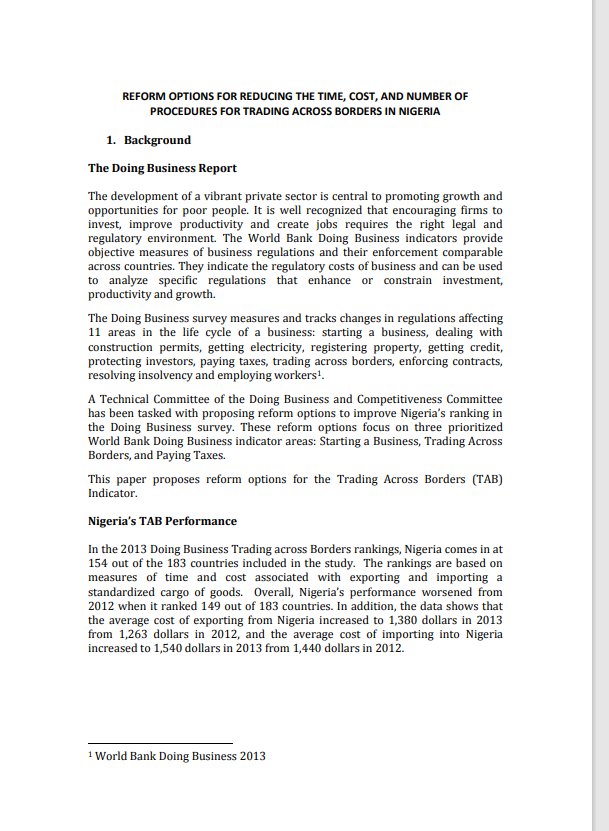This study focuses on the determination of the impact of Nigeria’s textiles import restriction. Specifically, the study describes the structure of the global and Nigeria’s textile industries as well as the global value chain, and the policy environment surrounding the industry in a global and national perspective. It was conducted in 2013 with support from FCDO (formerly DFID).
STUDY OF THE IMPACT OF NIGERIA’S TEXTILE IMPORT RESTRICTIONS
Associated resources
Trade Associations play a role in promoting appropriate policies, regulations, and necessary reforms relating to their sector of operations. They create opportunities for networking and consultations among industry players as well as being a voice when it comes to new regulations and legislations while encouraging best practices among its members. According to Peter Gomersall[1], trade associations exist to support their members and further their interests, to defend them when they are under threats and to promote a common position on issues affecting the environment in which they operate.
Given the foregoing, the PDF Bridge Trade Policy Workstream organised a two-day capacity-building session targeted at strengthening the leadership of non-oil export-related trade associations and improve on their business strategy to position them to take advantage of the opportunities in the non-oil export value chain. The sessions had in attendance delegates from government agencies such as FMITI, NAQS, FMARD, NOTN, CBN as well as executives of trade group drawn from various industries including agricultural commodities farmers, agricultural commodities exchange and aggregators, industrialists, agro-processors, women, and youth development groups, textile and apparel among other participants.
[1] https://www.iiste.org/Journals/index.php/JEDS/article/download/7852/8030
Africa’s contribution to global trade in services is little with slow growth despite rapid globalisation and liberalisation. The continent’s intra – African trade in services is also relatively little. Nigeria’s services sector contribution to its GDP is huge, representing 55.8 per cent in 2017. It recorded a growth rate of 1.83percent in 2018. Hence, the services sector possesses the immense potential to promote diversification, employment, and growth, even without a current holistic services sector policy. This study specifically mapped and profiled key services sectors; reviewed domestic regulations relating to services; estimated the current and future potentials for export, and provided associated recommendations.
Continuous and consistent implementation of the Export Expansion Grant (EEG) has been identified as crucial to the diversification agenda of the Federal Government of Nigeria (FGN). Despite its importance, however, the programme has experienced various implementation challenges and, at least, three suspensions since inception. The aim of this study is to provide evidence-based information on EEG implementation to guide relevant stakeholders to reform and reposition the scheme for greater effectiveness. The study aims to specifically analyse the impact of the grant on the beneficiaries prior to suspension in 2013 and the post-suspension implementation from 2017. It also investigates the challenges faced by beneficiaries in their attempts to access the grant. The study applied both primary through survey and secondary data through desk review to address the set objectives of the study. The survey was conducted through three methods: (i) administration of questionnaires, (ii) Key informant interviews (KII), and (iii) focused group discussions (FGD).
The lack of improvement and deterioration in Nigeria’s export trade performance rankings such as measures of time and cost associated with exporting and importing a standardized cargo of goods reinforces the need for Nigeria to undertake urgent and extensive reform to improve its trading across borders performance. This research provides immediate, medium and long term reform options.
This dialogue explores the alternative ways to provide market access to the southeast business hubs from Aba through Onitsha. COVID19 has caused businesses to reimagine their trade value-chain working actively to diversify roles. This dialogue explores ways that new technologies can help bridge the gap between buyers, sellers, and manufacturers.






